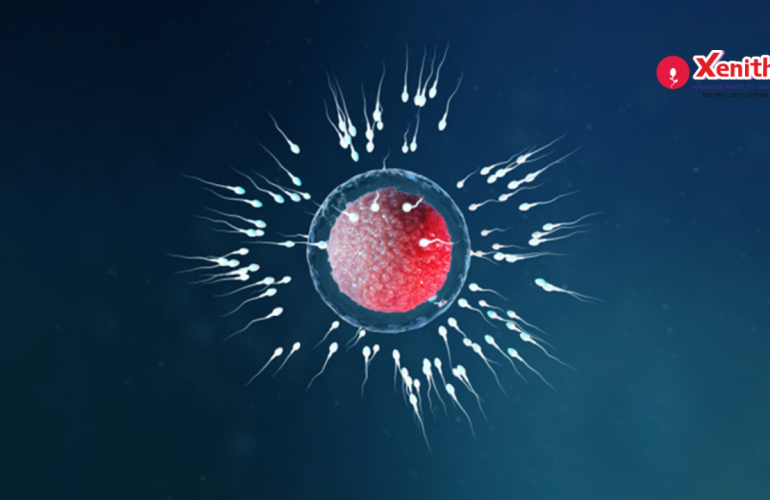Introduction
Infertility affects around 1 in 6 couples globally, and in nearly half of these cases, male reproductive health plays a role. Among the various conditions contributing to male infertility, retrograde ejaculation (RE) is a lesser-known but treatable cause. This guide sheds light on how retrograde ejaculation infertility works, why it happens, and how you can overcome it to achieve parenthood.
Understanding Retrograde Ejaculation
Retrograde ejaculation occurs when semen travels backward into the bladder instead of exiting through the penis during orgasm. In a typical ejaculation, the muscles at the bladder neck close tightly, directing semen outward. But with RE, these muscles don’t function properly, allowing sperm to flow into the bladder instead.
This condition does not affect sexual pleasure or the ability to orgasm, but it disrupts the path sperm need to take for conception, leading to male fertility challenges.

Free Thursday Consultation
Book Your AppointmentHow Retrograde Ejaculation Affects Fertility
The primary concern with retrograde ejaculation infertility is the absence or significant reduction of sperm in the semen. Even if a man produces healthy sperm, they may not reach the outside world if they’re ending up in the bladder. This leads to:
- Low or zero sperm count in ejaculate (which may mimic azoospermia, a condition where no sperm is found in semen)
- Sperm found in post-ejaculatory urine, a clear indicator of RE
So, while RE doesn’t stop sperm production, it prevents sperm from reaching the egg—making natural conception difficult.
Common Causes of Retrograde Ejaculation in Infertile Men
Several underlying health issues and medical interventions can cause RE:
- Diabetes: One of the most common causes. Long-term diabetes can damage nerves that control the bladder neck.
- Surgery: Operations involving the prostate, bladder, or spinal cord can affect the normal ejaculation pathway.
- Medications: Certain drugs used for high blood pressure, depression, or enlarged prostate can interfere with muscle control during ejaculation.
- Neurological Conditions: Diseases like multiple sclerosis or spinal cord injuries can impact nerve signals involved in ejaculation.
All these male infertility causes retrograde ejaculation and should be evaluated by a healthcare provider.

Diagnosis of Infertility Caused by RE
If you and your partner are facing trouble conceiving, and your semen sample shows a very low or zero sperm count, your doctor may suspect RE. Diagnosis usually involves:
- Post-ejaculatory Urine Analysis: To check for the presence of sperm in urine, which helps differentiate azoospermia vs retrograde ejaculation.
- Medical History & Physical Exam: Identifying related conditions like diabetes or surgeries.
- Semen Analysis: To assess sperm count, volume, and quality.
Identifying the root cause is crucial for guiding treatment.
Treatment Options to Restore Fertility
If you’ve been diagnosed with retrograde ejaculation, don’t worry—it’s treatable, and many men go on to become fathers. Options include:
a. Medication
Drugs such as imipramine or pseudoephedrine can help strengthen the muscles at the bladder neck, encouraging normal ejaculation. These are particularly effective when RE is due to nerve dysfunction or mild diabetes.
b. Assisted Reproductive Technologies (ART)
- IVF (In Vitro Fertilization): Eggs and sperm are combined in a lab and implanted into the uterus.
- ICSI (Intracytoplasmic Sperm Injection): A single sperm is directly injected into the egg.

c. Sperm Retrieval from Urine
In many RE cases, sperm collected from urine after ejaculation can be washed, concentrated, and used for IVF or ICSI. This method bypasses the need for natural ejaculation.
Success Rates & Prognosis
The success rates of treatment for retrograde ejaculation infertility vary based on the underlying cause, age, and overall sperm health. With medication, up to 25–50% of men may regain outward ejaculation. When combined with ART like ICSI, success rates can be significantly higher.
The prognosis is often good, especially when the condition is caught early and managed with professional guidance.
Conclusion
Retrograde ejaculation is a manageable and treatable cause of male infertility. While it may feel discouraging to learn that your sperm aren’t reaching where they need to, modern treatments and reproductive technologies offer real hope.
If you suspect RE or have been diagnosed with it, don’t hesitate to seek help from a fertility specialist. Parenthood may still be very much within reach.
FAQs
1.Can you have children with retrograde ejaculation?
Yes, many men with RE become fathers with treatment or assisted reproductive technologies like ICSI.
2.What causes infertility in males?
Common causes include low sperm count, poor motility, retrograde ejaculation, hormonal imbalances, or genetic factors.
3.Can retrograde ejaculation cause impotence?
No, RE does not affect libido or the ability to have an erection. It only affects the direction of semen flow.
4.What happens if a man goes a year without ejaculating?
There may be no major health risk, but semen will eventually be reabsorbed by the body or released during nocturnal emissions.
5.What are the signs of low sperm count in a man?
Signs can include difficulty conceiving, watery semen, or small testicles, though many men have no obvious symptoms.
6.Is retrograde ejaculation harmful?
It’s not dangerous or painful, but it can lead to fertility issues that require medical attention.
7.What are the disadvantages of ejaculating every day?
Frequent ejaculation may slightly reduce sperm count per ejaculation, but overall it’s not harmful for most men.
8.At what age does a man stop ejaculating?
There’s no fixed age. While volume and frequency may decline with age, men can ejaculate well into their senior years.
9.How do I stop retrograde ejaculation?
Treatment includes addressing underlying conditions, medication, and in some cases, assisted reproduction.
10.Does not ejaculating for 7 days increase testosterone?
There’s minimal evidence that abstaining affects testosterone levels significantly. Temporary increases are often small and short-lived.




